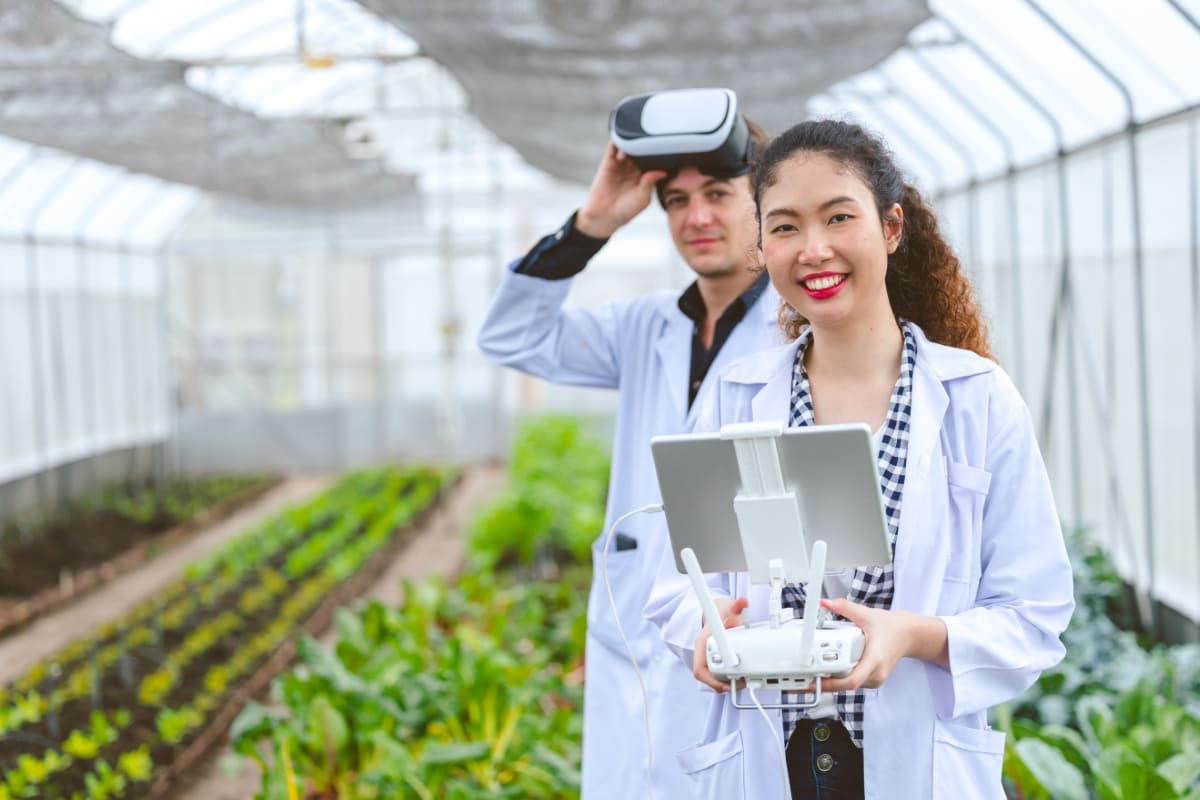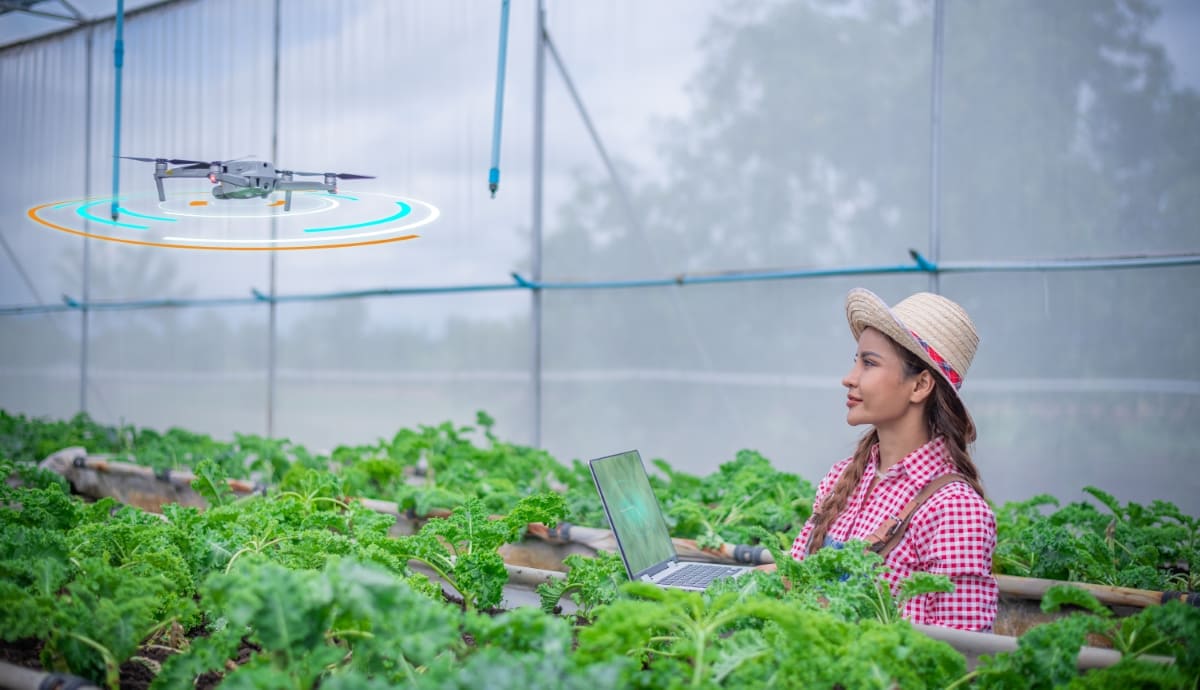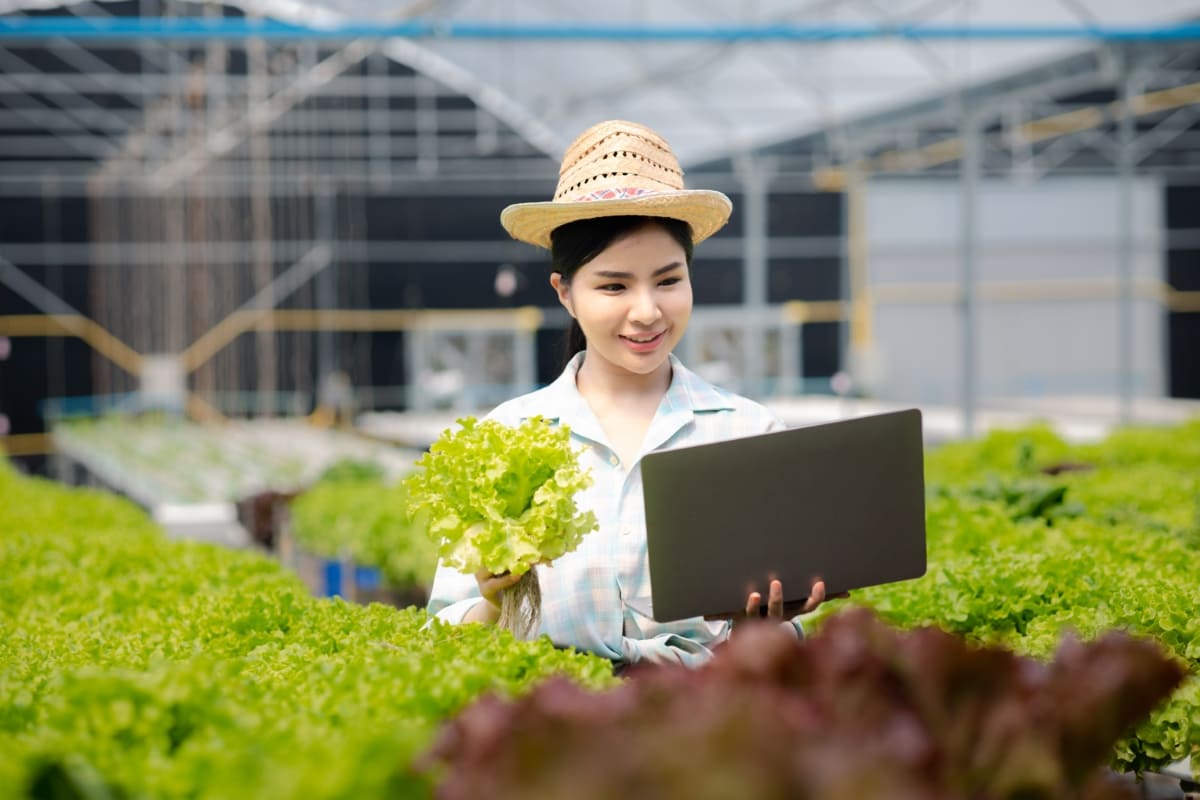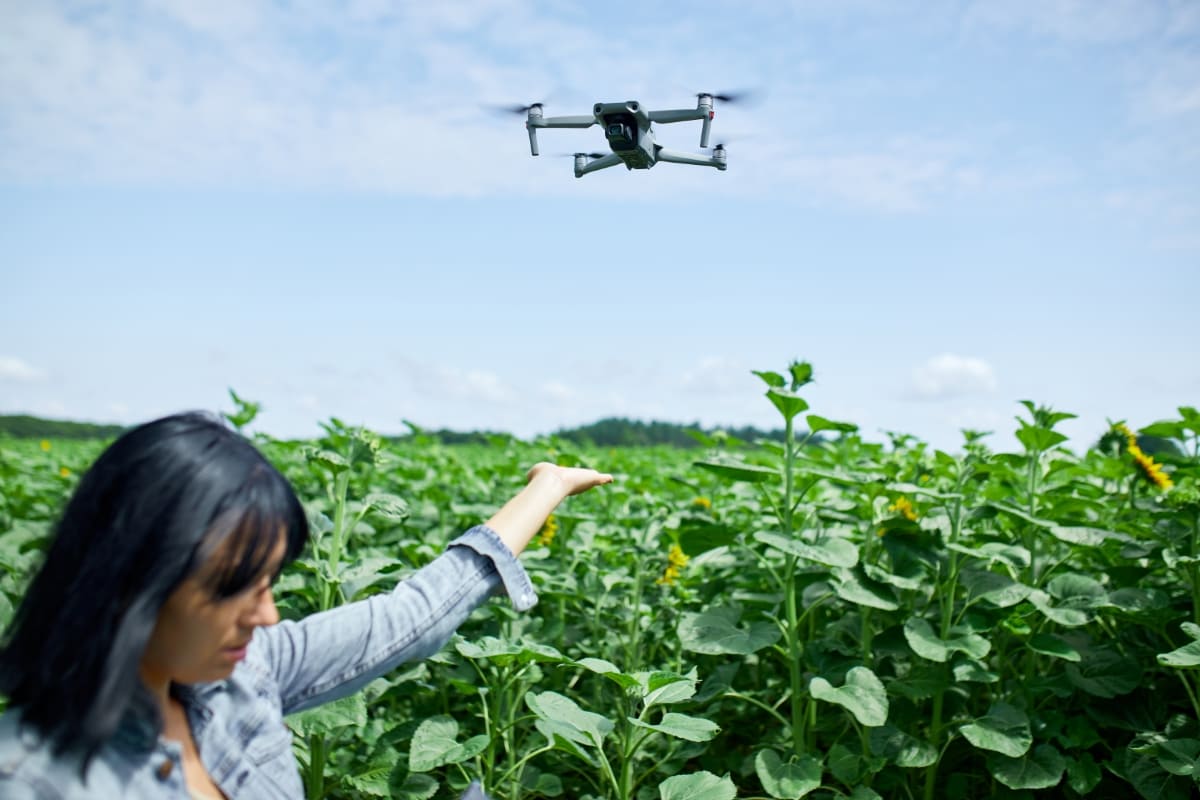The integration of AI (Artificial Intelligence) into the agricultural sector has paved the way for revolutionary advancements in farming practices and decision-making. Generative AI, a subset of AI that focuses on generating new content or data, is revolutionizing the field of AgTech (Agricultural Technology). Generative AI offers farmers unprecedented capabilities to enhance crop yields, predict disease outbreaks, optimize resource usage, and much more.

Generative AI in AgTech
Role of Generative AI
Generative AI is revolutionizing the field of precision agriculture by providing farmers with powerful tools to enhance crop yields and promote sustainability. By utilizing advanced algorithms, generative AI technology can analyze various sources, including sensors, satellites, and historical weather patterns.
The main role that generative AI plays in precision agriculture is its ability to optimize resource allocation. The integration of generative AI into precision agriculture also promotes sustainable farming practices through efficient resource management. Analyzing sensor-generated data related to temperature, humidity levels, and irrigation needs in real time allows for precise control over irrigation systems. As a result, water usage can be minimized while ensuring optimal crop hydration.
Another significant benefit of generative AI in precision agriculture is its capacity to predict potential pest infestations or disease outbreaks. This proactive approach enables farmers to take timely action to prevent widespread damage and reduce reliance on chemical interventions.
How is Generative AI Transforming
Generative AI is revolutionizing the way agricultural practices and decision-making are being conducted. Generative AI is transforming the way farmers make important decisions regarding crop management, resource allocation, and overall farm operations. By analyzing historical data on soil conditions, pest infestations, weather patterns, and other relevant factors, generative AI algorithms can accurately predict future outcomes.
This allows farmers to proactively plan their planting schedules, optimize irrigation strategies, and take preventive measures against potential crop diseases. Moreover, by integrating generative AI with precision farming technologies such as drones or satellite imagery systems, farmers can gather high-resolution data about their fields regularly. This enables them to monitor crop health more effectively and identify any early signs of stress or disease outbreaks. In turn, this empowers farmers to take timely action and implement targeted interventions for better yield protection.
Integrating Generative AI with AgTech
By harnessing the power of artificial intelligence, farmers can make informed decisions, optimize resource allocation, and improve crop yields. The impact of integrating Generative AI with AgTech is precision farming. With real-time data collection and analysis, farmers can monitor crops at a granular level, identifying areas that need attention, such as nutrient deficiencies or pest infestations. This allows for targeted interventions, reducing waste and maximizing output.
In case you missed it: E-commerce in Agriculture: Challenges and Opportunities

Furthermore, Generative AI can assist in optimizing irrigation systems by analyzing weather patterns and soil moisture levels. This conserves water and also ensures that crops receive the hydration for optimal growth. By leveraging advanced technologies like artificial intelligence, farmers can make smarter decisions regarding crop cultivation techniques, resource allocation, and machinery maintenance schedules, ultimately leading to higher productivity levels and sustainable farming practices.
Generative AI and Crop Disease Prediction
Crop diseases are a significant challenge for farmers worldwide as they can cause substantial damage to yields and result in economic losses. Traditionally, farmers rely on visual inspection or manual sampling techniques to detect diseases early on, but these methods are time-consuming and often not precise enough.
With generative AI, however, farmers can benefit from real-time monitoring systems that analyze various factors such as weather patterns, soil conditions, plant health indicators, and historical data. Moreover, generative AI-based systems can continuously learn from new data inputs and adapt their predictions accordingly. This adaptive capability ensures that the models stay up-to-date with emerging threats and evolving patterns of crop diseases.
The Impact of Generative AI
AI algorithms can generate insights that help farmers know when to plant and even when to harvest. With real-time data analysis and predictive analytics capabilities, farmers can optimize logistics operations such as transportation routes and cold storage management. This not only minimizes waste but also ensures that fresh produce reaches consumers faster.
By monitoring environmental factors like temperature, humidity levels, and insect populations in real-time through IoT devices integrated with AI systems, farmers can take proactive measures to prevent outbreaks or mitigate their impact before they spread throughout the crops. Furthermore, generative AI aids in improving sustainability practices across the agricultural value chain by optimizing resource allocation.
Generative AI for Climate-Resilient Farming
Generative AI algorithms can analyze data from various sources, including weather patterns, soil conditions, and historical crop performance. By identifying patterns and correlations within this data, generative AI can provide valuable insights into how different crops will respond under specific climatic conditions. This enables farmers to make decisions about which crops to plant based on the extreme weather events occurring during their growing seasons.
It also helps them optimize irrigation schedules and implement appropriate strategies for protecting crops against adverse weather conditions. Moreover, generative AI can assist in developing customized climate-resilient farming practices tailored to specific regions. For example, it can recommend using certain seed varieties that are more resistant to drought or implementing soil management techniques that improve water retention capacity.
Generative AI and IoT in Smart Farming
By leveraging real-time data and predictive analytics, farmers can make decisions about their crops, livestock, and overall farm management. With the help of IoT devices such as sensors, drones, and satellite imagery, farmers can collect vast amounts of data about various aspects of their operations. Generative AI algorithms then analyze this data to identify trends, patterns, and potential problems before they even occur. Generative AI can predict when a particular disease might strike or help optimize irrigation schedules based on real-time soil moisture readings.
In case you missed it: 10 Benefits of Drone Sprayers in Agriculture

Soil Health Management with Generative AI
Soil health is a major factor in agricultural productivity, and maintaining it is essential for sustainable farming practices. However, soil degradation and pollution pose significant challenges to farmers worldwide. This is where Generative AI comes into play, revolutionizing soil health management with its advanced capabilities.
Generative AI can analyze data related to soil composition, nutrient levels, and environmental factors to develop effective soil remediation strategies. This allows for tailored solutions that maximize the efficiency of soil remediation efforts. With Generative AI, farmers can benefit from real-time analysis of their soil’s health status. Generative AI also enables predictive analytics by analyzing historical data on crop performance under varying conditions.
Generative AI in Livestock Farming
By generative AI algorithms, farmers can now monitor and analyze various aspects of livestock farming, such as animal behavior, health conditions, and breeding patterns. This enables them to make data-driven decisions that enhance productivity, animal welfare, and overall farm efficiency. Generative AI helps predict disease outbreaks among animals by analyzing historical data combined with real-time inputs from sensors attached to livestock.
By identifying early warning signs or symptoms, farmers can take preventive measures promptly and reduce losses caused by diseases. Furthermore, generative AI allows for precise monitoring of animal feeding patterns and nutritional requirements. By analyzing data collected from IoT-enabled devices installed in feeding systems or wearable trackers on animals themselves, farmers can ensure optimal nutrition levels for each animal.
In case you missed it: Agriculture Infrastructure Subsidies for Indian Farmers

Conclusion
Generative AI, also called generative adversarial networks (GANs), is a cutting-edge system that combines artificial intelligence and agriculture to revolutionize the field of AgTech. It includes the use of machine learning algorithms to analyze large datasets and generate new data based on patterns identified in the existing data. It offers a powerful tool for improving decision-making processes within agriculture.
- Feed Your Flock for Less: Top 10 Tips to Save on Chicken Feed
- Ultimate Guide to Ossabaw Island Hog: Breeding, Raising, Diet, and Care
- Hatching Answers: The Top 10 Reasons Your Chickens Aren’t Laying Eggs
- Eggs and Economics: Breaking Down the Cost of Raising Backyard Chickens
- Defend Your Greens: Proven Methods to Keep Iguanas Out of Your Garden
- Ultimate Guide to Cinnamon Queen Chicken: A Comprehensive Guide for Beginners
- Ultimate Guide to California Tan Chicken: Breeding, Raising, Diet, Egg-Production and Care
- Ultimate Guide to Marsh Daisy Chicken: Breeding, Raising, Diet, and Care
- 10 Types of Chicken Farming Businesses You Can Start for Profits